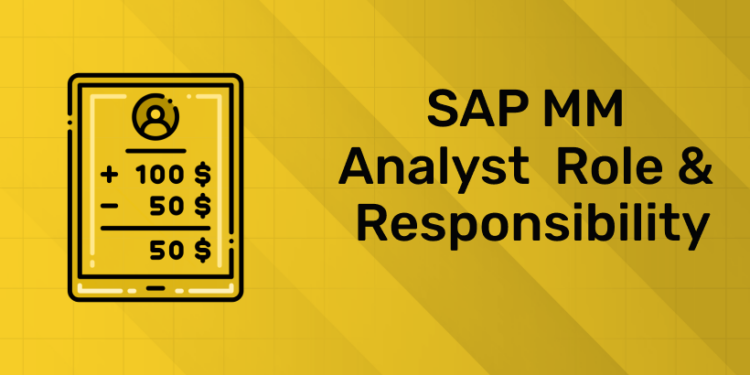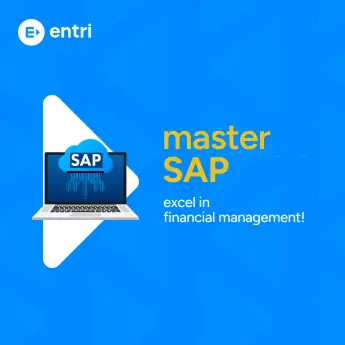Table of Contents
An SAP MM (Materials Management) Analyst is a professional who specializes in the configuration, management, and enhancement of the SAP MM module. They work closely with business stakeholders to ensure that the system efficiently handles procurement, inventory, and logistics processes. Their role blends business insights with technical expertise to optimize supply chain operations. In many organizations, the SAP MM Analyst is seen as a bridge between the IT department and supply chain functions, ensuring that every component of material management aligns with broader business goals.
Key Characteristics:
- Domain Expertise: Deep understanding of procurement and inventory management.
- Technical Proficiency: Skilled in configuring and customizing the SAP MM module.
- Analytical Mindset: Able to analyze complex business processes and recommend system improvements.
- Effective Communicator: Works seamlessly with cross-functional teams to implement best practices.
SAP MM Analyst: Key Responsibilities
An SAP MM Analyst performs a range of duties to ensure that the material management system meets the operational needs of the organization. Their responsibilities can be broadly categorized into the following areas:
2.1 System Configuration and Customization
- Design and Setup: Configure the SAP MM module to reflect business processes.
- Customization: Tailor the module to meet unique organizational needs.
- Integration: Ensure smooth data flow between SAP MM and other SAP modules (e.g., SAP SD, SAP FI).
2.2 Process Optimization
- Workflow Analysis: Identify gaps in existing workflows and propose system enhancements.
- Best Practices Implementation: Leverage industry best practices to improve procurement and inventory processes.
- Automation: Develop solutions to automate repetitive tasks within the MM module.
2.3 Data Management and Reporting
- Data Accuracy: Monitor and manage data to ensure it is reliable and up-to-date.
- Reporting: Create reports that help decision-makers track key performance indicators (KPIs).
- Analytics: Use data analytics to provide insights into material management trends.
2.4 User Training and Support
- Documentation: Develop detailed manuals and guidelines for end users.
- Training Sessions: Conduct training workshops to enhance user competency.
- Support: Provide ongoing technical support and troubleshooting for system issues.
2.5 Cross-functional Collaboration
- Stakeholder Engagement: Work with procurement, inventory, and finance teams to align the SAP MM system with business objectives.
- Project Management: Participate in projects involving system upgrades and new module implementations.
- Feedback Loop: Gather user feedback and coordinate with the IT team to implement improvements.
SAP MM Analyst: Essential Skills
Success in the SAP MM Analyst role requires a balanced mix of technical know-how, analytical capabilities, and soft skills. Here are the essential skills every aspiring SAP MM Analyst should develop:
3.1 Technical Skills
- SAP MM Module Expertise: Deep familiarity with the functionalities and configuration of SAP MM.
- System Integration: Understanding how SAP MM interfaces with other modules (e.g., FI, SD, PP).
- Database Knowledge: Proficiency in managing databases and using tools like SQL.
- Reporting Tools: Ability to create and manage customized reports using SAP reporting tools.
3.2 Analytical Skills
- Problem Solving: Capacity to identify system bottlenecks and propose effective solutions.
- Data Analysis: Ability to analyze data trends and make data-driven recommendations.
- Attention to Detail: Meticulous in ensuring system configurations meet business requirements.
3.3 Communication and Interpersonal Skills
- Effective Communication: Convey technical information clearly to non-technical stakeholders.
- Collaboration: Work efficiently in cross-functional teams.
- Documentation: Maintain clear, concise, and accurate documentation for system configurations and changes.
3.4 Project Management
- Time Management: Prioritize tasks and manage time effectively in a dynamic work environment.
- Organizational Skills: Handle multiple projects concurrently without compromising quality.
- Adaptability: Be flexible and ready to learn new processes and tools as required.
Bullet List: Top 5 Skills for an SAP MM Analyst
- Mastery of SAP MM functionalities
- Proficiency in integration techniques
- Analytical problem-solving approach
- Clear communication and documentation
- Strong project management capabilities
SAP MM Analyst: Career Path and Growth Opportunities
The role of an SAP MM Analyst can serve as a stepping stone to several career opportunities within the SAP ecosystem. Here’s how professionals in this field can progress:
4.1 Entry-Level to Mid-Level Roles
- Junior SAP MM Analyst: Typically involved in day-to-day configurations, basic troubleshooting, and routine support tasks.
- Senior SAP MM Analyst: Takes on complex projects, mentors junior analysts, and leads system optimization initiatives.
- SAP Consultant: Moves into advisory roles, guiding multiple clients on best practices and system implementations.
4.2 Advanced Career Paths
- Project Manager: Oversees large-scale SAP implementations and upgrades, managing teams and resources.
- Solution Architect: Designs comprehensive SAP solutions that integrate multiple modules and systems.
- SAP Manager/Director: Leads the overall SAP strategy within an organization, ensuring alignment with business goals.
4.3 Growth Factors
- Continuous Learning: Keeping up with the latest SAP releases and technological advancements is essential.
- Certifications: Earning certifications (such as SAP Certified Application Associate) can accelerate career progression.
- Networking: Engaging with SAP communities and attending industry events can open new opportunities.
- Mentorship: Learning from experienced professionals provides guidance and real-world insights into career advancement.
Numbered List: 5 Steps to Advance in Your SAP MM Career
- Gain Hands-On Experience: Start by working on smaller projects to build practical knowledge.
- Pursue Certification: Obtain relevant SAP certifications to enhance credibility.
- Stay Updated: Regularly update your skills through courses and industry publications.
- Expand Your Network: Connect with professionals and join SAP-focused forums.
- Seek Mentorship: Find a mentor to guide you through complex challenges.
SAP MM Analyst: Educational background and prerequisites
For those aspiring to become an SAP MM Analyst, a solid educational foundation coupled with specialized training is essential. Below are some typical prerequisites:
5.1 Academic Qualifications
- Bachelor’s Degree: A degree in Business Administration, Supply Chain Management, Information Technology, or a related field is usually required.
- Postgraduate Studies: Advanced degrees can provide a competitive edge, especially in larger organizations.
5.2 Certifications and Training
- SAP Certification: Certifications such as SAP Certified Application Associate – Procurement with SAP ERP can boost your profile.
- Specialized Courses: Enroll in courses that focus on SAP MM functionalities, integration, and process optimization.
- Workshops and Seminars: Participating in industry seminars and workshops helps stay updated with best practices and emerging trends.
5.3 Practical Experience
- Internships: Hands-on experience through internships can offer valuable insights into real-world applications.
- On-the-Job Training: Many organizations provide on-the-job training, which is crucial for mastering the intricacies of SAP MM.
- Project Work: Engage in projects that require system configuration, data management, and process reengineering
Conclusion
The role of an SAP MM Analyst is multifaceted and requires a balanced blend of technical expertise and business acumen. Whether configuring systems, optimizing processes, or managing data and reports, these professionals ensure that material management operations run seamlessly. By mastering both technical and soft skills, an SAP MM Analyst can pave the way for rewarding career opportunities that range from consultancy to leadership roles.
The journey involves continuous learning and professional development, with each project serving as a building block toward a more advanced career. Organizations that invest in their SAP systems rely on these experts to drive efficiency and innovation in supply chain management. For those ready to embrace this dynamic field, the rewards are both challenging and fulfilling.
Join Entri’s SAP MM Training Course today!!
Master SAP with Expert-Led Courses
Unlock your potential with our comprehensive SAP courses! Learn essential modules like SAP MM (Materials Management), SAP SD (Sales and Distribution), and SAP FICO (Financial Accounting and Controlling) from industry experts.
Know MoreFrequently Asked Questions
Which skills are crucial for an SAP MM Analyst?
A: Essential skills include:
- Expertise in SAP MM configuration and integration.
- Analytical and problem-solving abilities.
- Strong communication and documentation skills.
- Proficiency in data management and reporting.
- Familiarity with supply chain management concepts.
What educational background is typically expected for this role?
A bachelor’s degree in Business Administration, Supply Chain Management, Information Technology, or related fields is common. SAP certifications and specialized training in SAP MM further strengthen a candidate’s profile.
How can I advance my career as an SAP MM Analyst?
A: Advancing your career involves gaining hands-on experience, pursuing certifications, staying updated with new technologies, networking within the SAP community, and seeking mentorship from experienced professionals.










